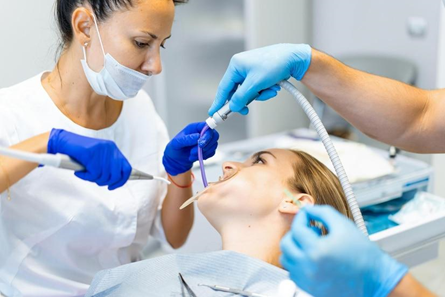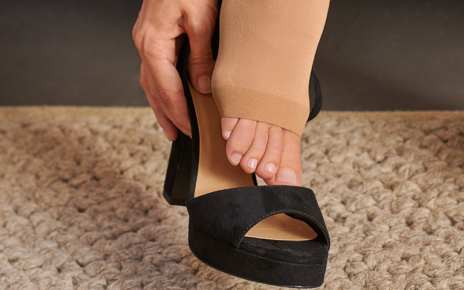Dental emergencies can sometimes occur and can lead to stressful and painful experiences. They require quick action and immediate treatment to avoid complications, from sudden toothaches and chipped teeth to more severe injuries. However, being prepared and knowing what to do in a dental emergency can help alleviate the stress and ensure you receive the care you need.
Understanding Dental Emergencies
A dental emergency is any situation that demands immediate attention to alleviate severe pain or to prevent further harm and damage to your teeth, gums, or mouth. Common dental emergencies include: Here are some additional common dental emergencies:
- Dental trauma: Injuries from accidents or falls that result in cuts, bruising, or damage to the gums, lips, or tongue.
- Dislodged or shifted teeth: When teeth move out of their normal position due to trauma or injury.
- Object stuck between teeth: A foreign object wedged between teeth, causing pain or discomfort.
- Bleeding gums: Persistent bleeding from the gums, especially when brushing or flossing.
- Lost or broken braces: You may experience discomfort or risk further injury if your braces become loose or broken.
- Painful wisdom teeth: Impacted wisdom teeth causing severe pain, swelling, or infection.
In any of these situations, it is crucial to promptly seek emergency or family dental care to address the issue and prevent further complications.
Being Prepared For Dental Emergencies
Dental emergencies can occur unexpectedly, but taking proactive steps to be prepared can help you manage the situation effectively. The following are some tips on how to be prepared for dental emergencies:
- Keep an Emergency Dental Kit: Keep a small emergency dental kit in your purse or backpack. It should include a clean washcloth, a small container with a lid, pain relievers, and an emergency dental contact card.
- Know What to Do: Educate yourself on basic first aid for dental emergencies. If a tooth is knocked out, rinse it, place it in a container with milk or saliva, and immediately seek emergency dental care.
- Have Emergency Dental Contacts: Keep a list of emergency dental contacts on hand, including your regular dentist’s phone number and emergency dentists open outside of regular business hours.
Getting The Help You Need
If you experience a dental emergency, getting the help you need as quickly as possible is essential. Listed below are some steps to take to get the help you need:
- Contact Your Dentist: Call your regular dentist’s office immediately to inform them about your emergency. They can provide you with instructions and advice on what to do next.
- Look for Emergency Dentistry: If you cannot reach your regular dentist, look for emergency dentistry that offers immediate care for dental emergencies. A quick online search or a referral from a family member or a friend can help you find the right dentist.
- Seek Immediate Care: If you experience intense pain or bleeding, immediately visit an emergency room or urgent care center. They can provide the necessary treatment and pain relief while you wait for your dentist’s appointment.
Emergency Dentistry
Finding emergency dentistry can help you get the immediate care you need in a dental emergency. With advanced technology and skilled professionals, emergency dentists can provide you with quick, effective treatment to alleviate pain and prevent further damage. Here are some tips on finding emergency dentistry :
- Ask for Referrals: Ask your regular dentist or friends and family for recommendations for emergency dentistry.
- Search Online: Use online resources to search for emergency dentistry. Look for dentists offering immediate appointments and positive reviews from previous patients.
- Check Hours and Services: Before scheduling an appointment, check the dentist’s hours and services. Look for a dentist who provides emergency care and services outside of regular business hours and provides a range of treatments to address different dental emergencies.
Conclusion
Encountering a dental emergency can be a painful and distressing experience. Still, it is possible to manage the situation effectively by being prepared and knowing what to do. It is recommended to keep an emergency dental kit, educate oneself on basic first-aid, and have emergency dental contacts readily available. In a dental emergency, one must contact one’s regular dentist and seek emergency dentistry that can provide immediate care. With the proper preparation and prompt action, receiving the necessary treatment to alleviate pain and prevent further damage to one’s teeth and gums is possible.
Several options are available if you’re looking for emergency dentistry. Begin by asking your regular dentist for a referral or searching online for emergency dentists. Next, look for dentists offering immediate appointments and positive reviews from previous patients. Finally, check the dentist’s hours and services to ensure they can provide the necessary treatment for your dental emergency.
Dental emergencies can happen anytime, and being prepared can make all the difference in receiving the care you need. So keep an emergency dental kit, educate yourself on basic first-aid, and have emergency dental contacts on hand. With these tips and the help of emergency dentistry, you can be prepared for any dental emergency that comes your way.





